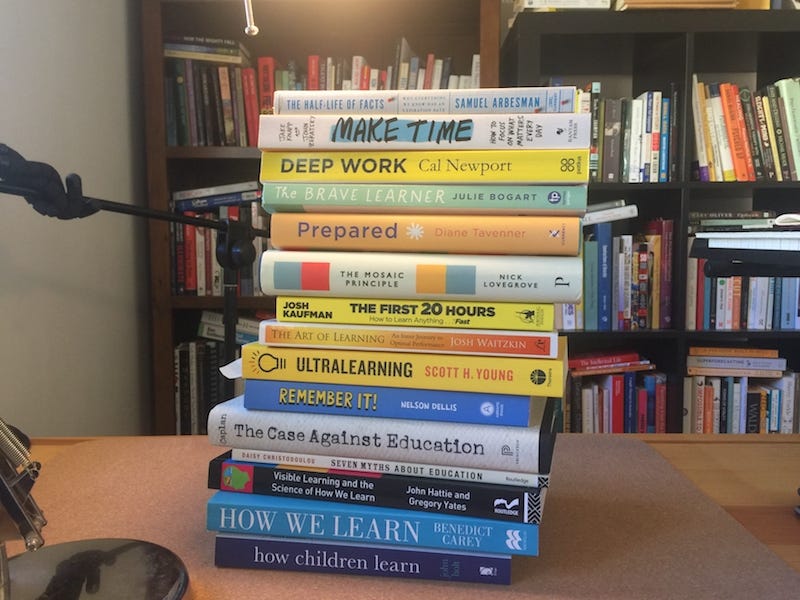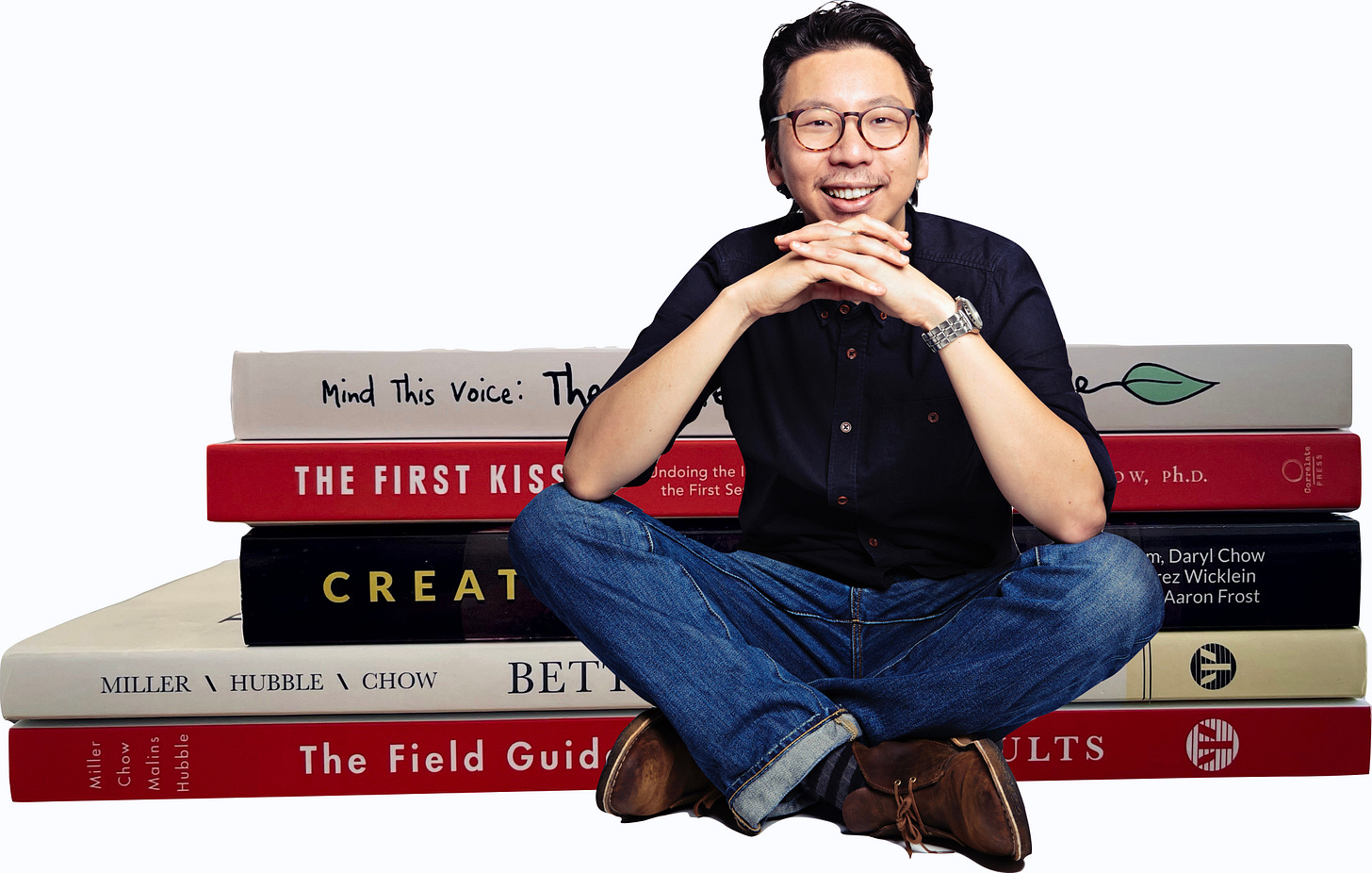The Unspeakable in Therapy. Frontiers Friday #171 ⭕️ (Part II)
Off-limit topics, changing vs. connecting, and the things that capture and derail what we value.
Here’s 5 recommendations for this week, on the things that don’t often get spoken about and how we can face them.
Please take note of a special Fire-Side Chat Scott Miller and I are hosting (see Notice Board below).
Happy Australia Day.

🎧Listen: Are there any off-limits subjects between you and your therapist?
In this podcast interview with clinical psychologist Andrew Hatz, he talks about how politicized the world of therapy has become. Over the last few years, he has noticed a climate of patients not being able to talk about what’s on their mind without getting a lecture from their therapist about racial injustice, as well as an environment that teaches clinicians to look at patients through a politicized lens.
Andrew Hatz also the founder of The Open Therapy Institute which offers mental health resources for overlooked patient populations in a heated political atmosphere.
Key Grafs:On the question of what kinds of people who go into the mental health profession (34 min): A personality type characterised as hyper-empathetic and resistant to confrontation.
(DC notes: personality trait of high agreeableness, that is high empathy and regard for others, sometimes at the expense of self, and politeness)Overlooked populations:
there are a lot of different types of overlooked populations that have almost some of these populations have virtually no clinical literature on them, No trainings on them available anywhere for therapists, no services, no clinics, no specializations. This could be obviously people who are canceled in one way or another, people who are isolated and self-censoring, but also like people who are struggling with masculinity and like want an authentic sense of masculinity that feels right to them, but they don't want to get divorced or they don't want to just, or they're struggling or they've dealt with anti-white hatred in its variety of forms.
🎧 Listen: My Emotional Inheritance
Listen to this one-off consultation with psychotherapist Esther Perel. Listen carefully without rushing to conclusions. In fact, read the the person’s introduction below first, and then develop a mental map of how you might approach this conversation if you are working with this person and the family.“I’m 36 and about to start family therapy with my mom and dad in hopes of finding some healing and doing some repair work on a relationship.
My question is, what does one do when harm has been caused in a relationship and you know you’re most likely not going to get the apologies you need or the repair to feel fully okay in that relationship?
My dad kept a strong authoritarian parenting style: lots of lectures, lots of tone policing. My mom was a bit more passive. The result was that I rarely felt in control of myself. I didn’t have a voice, didn’t feel valued.
Now, as a 36-year-old adult, not much has changed in our dynamic. I see the ways this has affected my own relationships and the way I move through the world, and I’m working to heal and grow from that. Part of my growth, ideally, is to be able to bring this history of harm to my parents and say, ‘When these events happened, this was the impact, and this is the type of repair work I need to do with you to feel okay in this relationship,’ but what do I do when that hasn’t been successful in the past, and it seems clear that I might never get the apologies or the repair that I feel I need? I don’t want to cut ties with my parents, but I also need to get to a place where I feel enough peace to be in relationship with them.”
Scribble down some of your initial thoughts. Of course, you don’t know much about the details at this stage. After listening to their conversation, note down how your thinking has shifted, what has stayed the same, and what stood out to you.
I can't highly recommend enough a close listen to this conversation.
I love to hear your thoughts about this.👨🏻💻Web-Read: How Therapists Became Social Justice Warriors
I’ve referenced this in the previous Frontiers Friday #170. It’s worth the read in its entirety.🎧 Listen: This Conversation Will Change How You See the World
C. Thi Nguyen is a modern-day philosopher (and gamer) that is worth paying attention to. His paper on Value Capture is something I will be talking more about in the future. For now, this particular interview has got nuggets that we benefit from.
This is a wide-ranging conversation, from trust, art, games and communities. They delved into the distinction be games and gamification, the promotion and diminishment of agency.
The reason I have this recommendation here is because games, especially video-games, have become ubiquitous with not only teens but also young adults. I don’t think many of us go beyond talking about the impact of games other than the pros and cons and the “not going outside enough” conversation.
Key Graf:Games tell us what to desire, what to want.
Nguyễn shared about what a well-known German game designer said at a conference that has a significant impact on him:
“…the most important thing in my toolbox is the point system... cos it tells the person what to desire.”
⏸️ Words Worth Contemplating:
“Not everything that is faced can be changed, but nothing can be changed until it is faced.”
~ James Baldwin
Reflection
Our work in the therapy room requires us to hold space for contradictory and paradoxical ideas.
How do we allow ourselves to receive, to be moved and to be changed, while also tapping into the multitude of selfs within us, mixing into the conversational reality formation of therapy, in service of the person in front of us?
Put in another way, the musicians would say, how do we jam?
Notice Board:
A Fire-Side Chat with Scott Miller and Daryl Chow:
Scott and I are doing a free, “no expectations, no agenda zoom” monthly meeting. Just an opportunity to explore deliberate practice, feedback-informed treatment, and professional development together with other like-minded professionals.
Cost: Free
When: 8am Central Time on the last Tuesday of every month. First meeting to be held on February 27th, 2024.
Space is limited.
Registration is required.
Greetings to the new team at Mid-North Coast, NSW!
I’m always excited when others are trying to do the rigorous (and oftentimes, thankless) work of research. Daniel Sousa from University Institute, Lisbon Portugal is conducting a study on developing a new instrument to evaluate therapists' degree of deliberate practice. Join the study. Takes about 10-15mins.
One weeks left to save $140 for the Deep Learner course.
Out of all the courses, Deep Learner is one of that is closest to my heart. Because there is a paradox at play. An over-emphasis on performing can impede learning.
Many books were written on the topic on learning.Why?
To learn well is one of the essential skills to cultivate.
Gobbling down information is not really learning. And to become a deep learner, one has to conceive and utilise a reliable system, a Personalised Learning System (PLS), that puts you on a feedback loop that grows you, nurtures you, and ultimately translate into helping others in your clinical practice.
The PLS system looks like this:The overview of the course looks like this:
As soon as you begin, you’d be “dripped” into your inbox one key idea at a time, every 3 days. Plus, you can revisit the materials whenever; you’d have LIFETIME access. The ideas in here are extensive and goes in-depth, which is why the course is designed in this fashion.
Feel free to check out some preview modules.
The doors are now open for registration.
SPECIAL NOTE:ONE MORE WEEK LEFT!
Until 31st of Jan 2024, there is a special promo code for folks on the Frontiers. Use this limited discount code (100 participants only) at the checkout to save $140.65: DEEPLEARNERJAN
Here’s a related video from the Frontiers archive on developing your own Personalised Learning System (PLS):
Daryl Chow Ph.D. is the author of The First Kiss, co-author of Better Results, The Write to Recovery, Creating Impact, and the latest book The Field Guide to Better Results.






